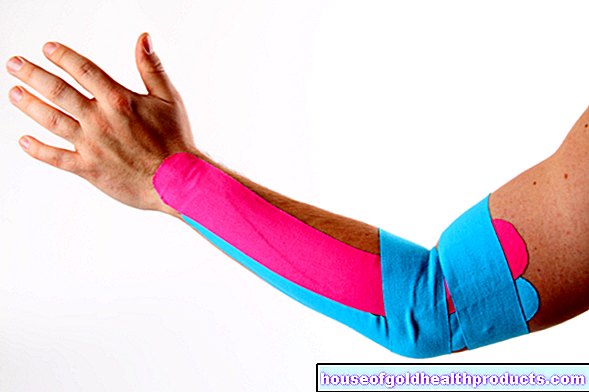Swimming accidents: cool off, but safe
All content is checked by medical journalists.MunichWhen the summer weather is as bright as last heat record weekend, many people are drawn to the lake or the sea. The sad result: Several people died while swimming. If you want to bathe safely, you should therefore observe a few rules.
In Mecklenburg-Western Pomerania alone, seven people drowned last weekend; across Germany there were at least 18 people between the ages of 8 and 88. Between 2012 and 2013, the number of fatal swimming accidents rose from 383 to 446 - most of them in unsupervised lakes and rivers. "Older people over 50 years of age in particular often overestimate themselves," says DLR President Hans-Hubert Hatje. Four out of five drowned people are men. "They are more reckless than women and go into the water more often drunk."
So that the trip to the lake does not end in a horror scenario, you should follow a few simple rules:
Slowly cool down
The following applies, especially on hot summer days: do not sprint into the cold water. The sudden change in temperature from hot to cold may overwhelm the circulatory system - especially in the elderly. This can lead to hypothermia and cramps. In the worst case, cardiovascular arrest occurs. The victim falls over and sinks silently under water.
Digest, then swim
Digesting costs energy. And that is pulled off the muscles. While the grilled meat is heavy in our stomachs, the muscles get less blood. Anyone who still works out swimming shortly after eating can easily get sick. The lower muscle strength also increases the risk of drowning.
Stay dry with alcohol
It is easy to overestimate yourself if you go swimming while drunk. The dangers posed by cold water, currents or the distance to the opposite bank are not properly recognized. Canals are also particularly dangerous because the embankments are often built in such a way that it is difficult to get out of the water there - especially if you are under the influence of alcohol.
Never travel long distances alone
Anyone who intends to cover a longer distance in the water, such as crossing a lake, should never do so without an accompaniment. Often the other bank looks closer than expected, currents can appear unexpectedly or a thunderstorm is approaching. The best thing is to find someone to accompany you on the boat.
Respect swimming bans
Even if the cool water beckons - if signs or flags warn against swimming, you should stay on the bank. Because then even good swimmers are threatened with mortal danger - for example from treacherous undercurrents. To be on the safe side, it is best to only bathe where it is expressly permitted. (away)
Source: Deutsche Lebens-Rettungs-Gesellschaft, accessed on July 24, 2014
Tags: menshealth home remedies digital health













-infektion.jpg)















